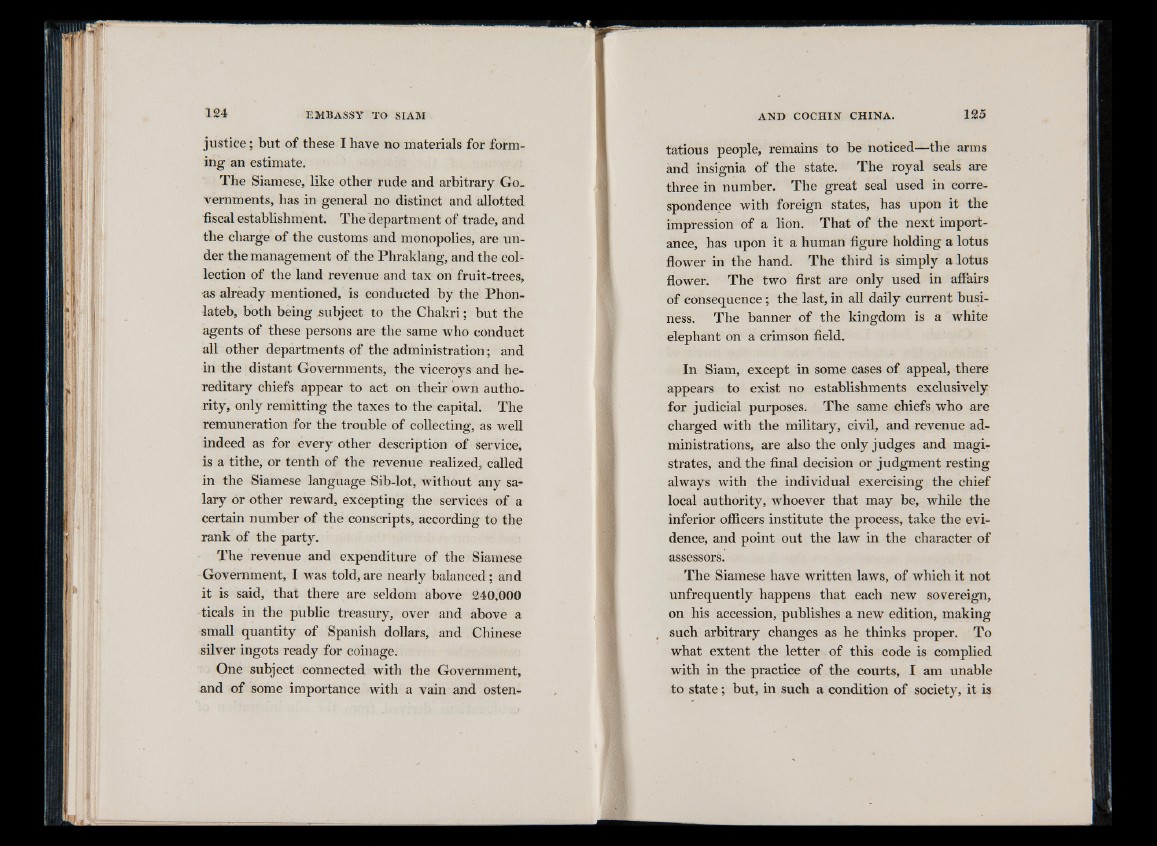
justice; but of these I have no materials for forming
an estimate.
The Siamese, like other rude and arbitrary Governments,
has in general no distinct and allotted
fiscal establishment. The department of trade, and
the charge of the customs and monopolies, are under
the management of the Phraklang, and the collection
of the land revenue and tax on fruit-trees,
as already mentioned, is conducted by the Phon-
lateb, both being subject to the Chakri; but the
agents of these persons are the same who conduct
all other departments of the administration; and
in the distant Governments, the viceroys and hereditary
chiefs appear to act on their own authority,
only remitting the taxes to the capital. The
remuneration for the trouble of collecting, as well
indeed as for every other description of service,
is a tithe, or tenth of the revenue realized, called
in the Siamese language Sib-lot, without any salary
or other reward, excepting the services of a
certain number of the conscripts, according to the
rank of the party.
The revenue and expenditure of the Siamese
Government, I was told,are nearly balanced; and
it is said, that there are seldom above 240,000
ticals in the public treasury, over and above a
small quantity of Spanish dollars, and Chinese
silver ingots ready for coinage.
One subject connected with the Government,
and of some importance with a vain and ostentatious
people, remains to be noticed—the arms
and insignia of the state. The royal seals are
three in number. The great seal used in correspondence
with foreign states, has upon it the
impression of a lion. That of the next importance,
has upon it a human figure holding a lotus
flower in the hand. The third is simply a lotus
flower. The two first are only used in affairs
of consequence ; the last, in all daily current business.
The banner of the kingdom is a white
elephant on a crimson field.
In Siam, except in some cases of appeal, there
appears to exist no establishments exclusively
for judicial purposes. The same chiefs who are
charged with the military, civil, and revenue administrations,
are also the only judges and magistrates,
and the final decision or judgment resting
always with the individual exercising the chief
local authority, whoever that may be, while the
inferior officers institute the process, take the evidence,
and point out the law in the character of
assessors.
The Siamese have written laws, of which it not
unfrequently happens that each new sovereign,
on his accession, publishes a new edition, making
such arbitrary changes as he thinks proper. To
what extent the letter of this code is complied
with in the practice of the courts, I am unable
to state ; but, in such a condition of society, it is